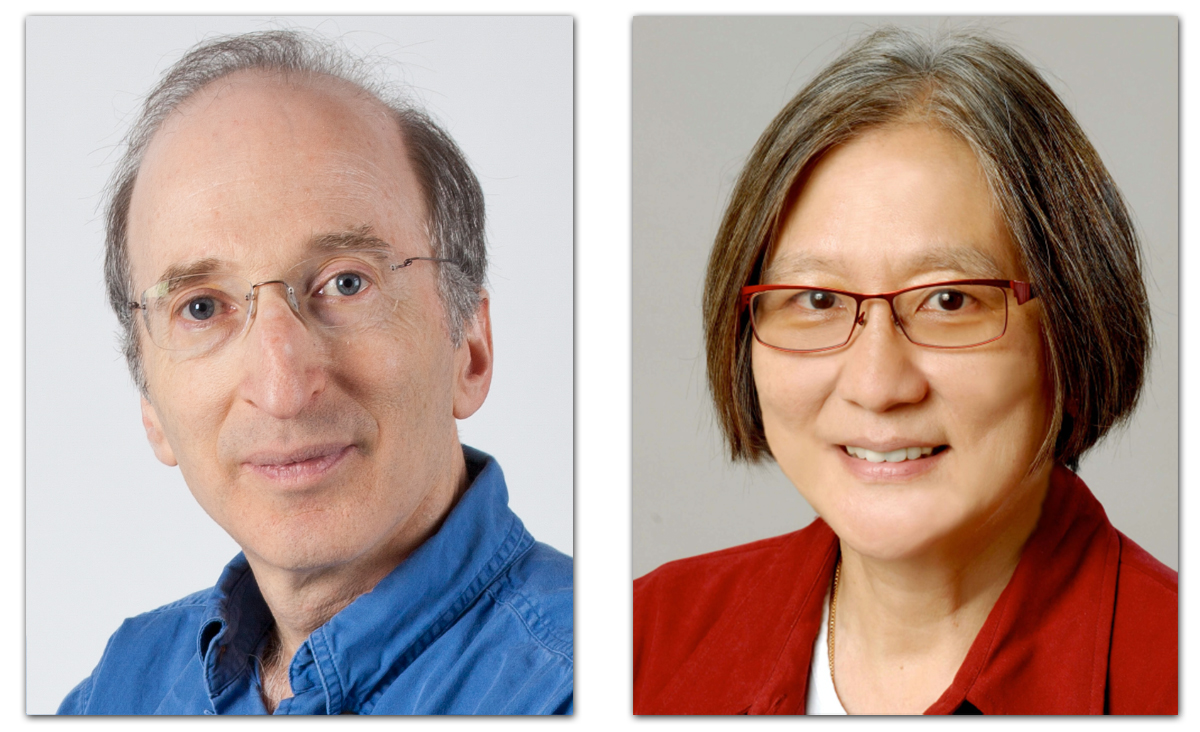
Saul Perlmutter and Inez Fung
Astrophysicist Saul Perlmutter and climate scientist Inez Fung, both scientists at the Department of Energy’s Lawrence Berkeley National Laboratory (Berkeley Lab), have been appointed to the President’s Council of Advisors on Science and Technology (PCAST), the White House announced today.
Perlmutter, who shared the 2011 Nobel Prize in physics for the discovery of the accelerating expansion of the universe, is a faculty senior scientist in Berkeley Lab’s Physical Sciences Area and holds the Franklin W. and Karen Weber Dabby Chair in the Department of Physics at UC Berkeley. Fung is a faculty scientist in Berkeley Lab’s Earth and Environmental Sciences Area and is a UC Berkeley professor of earth and planetary science and of environmental science, policy, and management. They are among 30 appointees announced today.
Shortly after his inauguration, President Biden reestablished PCAST with an executive order that advanced the council’s role to “advise the President on matters involving policy affecting science, technology, and innovation, as well as on matters involving scientific and technological information that is needed to inform public policy relating to the economy, worker empowerment, education, energy, the environment, public health, national and homeland security, racial equity, and other topics.”
In addition, as announced earlier this year by the White House, for the first time, the director of the Office of Science and Technology Policy (OSTP), who co-chairs PCAST, will serve as a member of the President’s cabinet.
“It’s certainly an honor to serve on PCAST,” said Perlmutter. “Science has so much to offer our society, with both solutions and guidance, so it is more important than ever that we make it possible for everyone to share an understanding of its approaches and capabilities. I hope my experience with curiosity-driven and practical research and education can help with both the advising and the understanding of this advice.”
“To have the opportunity to serve on PCAST is an immense honor, one I could not have imagined decades ago when I came to the United States from Hong Kong for college,” Fung said. “I am a proud product of the U.S. education and research environment, and I hope my work on the carbon and climate problem, as well as my personal experience as a foreign student and immigrant, can contribute to President Biden’s agenda on climate change as well as to broadening participation in STEM education across the country.”
Perlmutter leads the Berkeley Institute for Data Science, the Supernova Cosmology Project, and the Berkeley Center for Cosmological Physics. He is an author of hundreds of articles on cosmology, has also written popular articles and appeared in numerous PBS, Discovery Channel, and BBC documentaries. In addition to other awards and honorary doctorates, he is a member of the National Academy of Sciences and the American Academy of Arts and Sciences and a Fellow of the American Physical Society and the American Association for the Advancement of Science. His interest in scientific-style critical thinking led to the development of interdisciplinary courses at UC Berkeley called Sense and Sensibility and Science and Physics & Music, which he has been teaching to undergraduates for more than a decade.
Fung models the processes that maintain and alter the composition of the atmosphere and, as a consequence, affect the climate, focusing in particular on the biogeochemical cycling of carbon dioxide, methane, and dust. She is a contributor to the United Nations’ Intergovernmental Panel for Climate Change (IPCC), which shared in the 2007 Nobel Peace Prize. Fung is a member of the National Academy of Sciences and Taiwan’s Academia Sinica, and is a foreign member of the UK’s Royal Society, among other honors and awards.
PCAST’s roots took shape in the early 1930s when President Roosevelt convened a group of scientists for advice on matters of governing, prosperity, and security. Since then, each president has established a council of scientific advisors until PCAST was formalized in 1990.
###
Founded in 1931 on the belief that the biggest scientific challenges are best addressed by teams, Lawrence Berkeley National Laboratory and its scientists have been recognized with 14 Nobel Prizes. Today, Berkeley Lab researchers develop sustainable energy and environmental solutions, create useful new materials, advance the frontiers of computing, and probe the mysteries of life, matter, and the universe. Scientists from around the world rely on the Lab’s facilities for their own discovery science. Berkeley Lab is a multiprogram national laboratory, managed by the University of California for the U.S. Department of Energy’s Office of Science.
DOE’s Office of Science is the single largest supporter of basic research in the physical sciences in the United States, and is working to address some of the most pressing challenges of our time. For more information, please visit energy.gov/science.